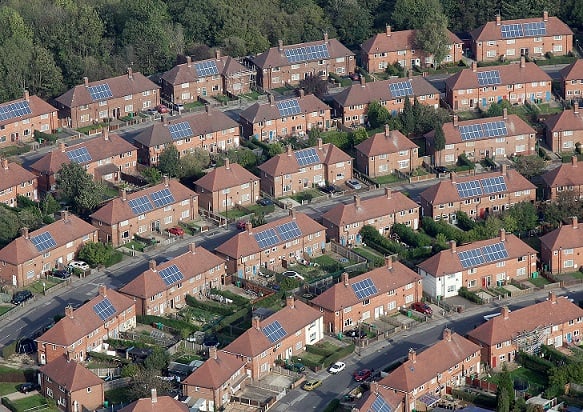
Image: Nottingham City Council
Shell Energy’s upgraded Smart Export Guarantee (SEG) tariff is to launch later in 2020, it told Solar Power Portal, as other suppliers confirm they are ready to launch.
A spokesperson for Shell Energy confirmed to Solar Power Portal that the supplier is developing a tariff but that it “is due to launch later in 2020”. The spokesperson later confirmed there would be a pilot tariff launched on 1 January, with Shell “working towards launching an upgraded tariff later in 2020”.
Under the Smart Export Guarantee (SEG), suppliers with over 150,000 domestic customers must launch an export tariff on or before 1 January 2020. There is no minimum floor price, but tariffs must be above zero.
In September, William Marks, policy lead for the SEG at BEIS, said he was “sure” BEIS would intervene and “alter the legislation to do something differently” if suppliers failed to come out with export tariffs on 1 January 2020.
Ofgem also proposed that it “may use its enforcement powers” if a supplier is in breach of a requirement under the Electricity Supply Licence Conditions.
However, the majority of suppliers requried to launch a tariff have confirmed to Solar Power Portal they stand ready to go live on time.
E.On will be offering two tariffs come 1 January, dubbed Fix & Export v1 and Fix & Export Exclusive v1. The latter is to be exclusively for new solar customers with E.On installations.
E.On was an early mover, with an offering for the first 500 customers to install solar PV via E.On’s solar programme to receive 5.24p per kilowatt hour of electricity exported back to the grid. This was, however, a limited proposition, with the full tariffs to launch as the SEG comes into full effect.
Centrica, through its British Gas supply business, will be launching a tariff on time, as will Bulb, which is to offer a fixed tariff.
OVO is also to be compliant by the deadline, but like the other suppliers, was unable to provide Solar Power Portal with any further detail. SSE – its energy supply division currently in the process of being acquired by OVO – said it will be offering a tariff which is to be available on its website on 31 December dubbed 'Smart Export'.
Utilita did provide some idea of what its tariff will look like. It will be available from 1 January and the rate is “likely” to be between 3-5p per kWh, although “this is yet to be confirmed”.
Octopus Energy is the only supplier required to launch a tariff to have already done so. Its Fixed and Agile tariffs have been available since April, with the Fixed tariff offering a flat rate of 5.5p per kWh and the Agile tariff a variable rate.
A spokesperson for npower told Solar Power Portal: “In light of our takeover by E.On, we’re discussing the best approach we take to meet the Smart Export Guarantee requirement. Information will be available on npower’s website by the 1st January 2020.”
It's not only suppliers with over 150,000 domestic customers that can launch a tariff, however. Suppliers that are not required to launch an export tariff can voluntarily launch one, but will be held to the same operational requirements as larger suppliers.
Analysis: Alice Grundy, junior reporter, Solar Power Portal
1 January 2020 is going to be an interesting date. Not only to see the exact rate of the tariffs that are launched on time, but also to see what the reaction will be to any latecomers.
If suppliers want to be attractive to those with solar on their roofs, then a rate around that of Octopus’ fixed rate of 5.5p per kWh is probably the way forward. However, that implies that suppliers are a wiling participant in the SEG and launching a tariff for the purpose of attracting new customers, but many are unlikely to be particularly enthused about the extra hassle of launching a tariff exclusively for customers with their own generation. It wouldn’t be all too unsurprising to see some low tariffs launched simply for the sake of complying with the SEG.
Likewise, what BEIS and Ofgem will make of some suppliers coming in late will be something to watch out for. The two have been relatively outspoken that there will be action, but what form that action takes and when is still unclear.
However, that the majority of the suppliers asked by Solar Power Portal are standing ready is no small thing, even if the case could be made that they had nine months in which to develop these tariffs and could have led the way with an early launch. It certainly leaves room to wonder what was happening behind the scenes during those months, and about the teething problems that might show up.

